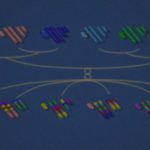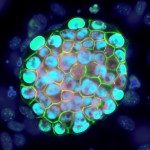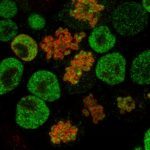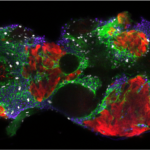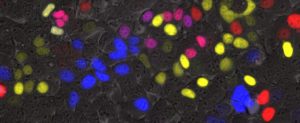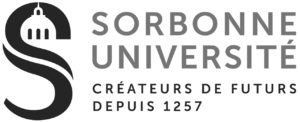This five-week intensive laboratory and lecture course covers the analysis of gene function at all levels: the gene and its product, the cell and its interactions, the embryonic tissues and the entire animal.
This course offers a full training program for advanced graduate and PhD students, as well as post graduate biologists and medical doctors willing to work on medical and experimental Mammalian Genetics.
The theoretical part of this course deals, in particular, with genetic analysis of mendelian and quantitative traits, phenotypic analysis of genetic variants, early embryo biology, pluripotent stem cells, cellular and molecular mechanisms controlling embryogenesis, models to study oncogenes and tumor suppressor genes, methods to study cell lineage in mouse embryos, genome editiing and conditional expression systems for transgenes, optogenetic approaches and the role of small RNAs.
The practical part presents methods and techniques used to derive induced pluripotent stem cells (iPS) from differentiated cells, to study behavioral traits and to analyze gene function in embryonic and adult mutants, to map mendelian traits and to identify QTLs.
The program of the course organized the previous year can be downloaded to get detailed information on the general frame of the course; some topics and practical works may change each year, without altering the general aims means of the course.
Candidates must have a good knowledge of basic laboratory techniques at the Master degree level. The committee of the course will evaluate applications.
Members of the Teaching Committee :
J. Artus* (Université Paris Saclay)
A. Lalouette* (Université de Paris)
L. Tiret* (Ecole Nationale Vétérinaire d’Alfort)
F. Toledo*(Sorbonne Université)
M. Sala (Institut Pasteur)
H. Waxin (Institut Pasteur)
M. Cohen-Tannoudji (Institut Pasteur)
X. Montagutelli (Institut Pasteur)
* University Representatives
Read more at: www.pasteur.fr/en/mouse-genetics
